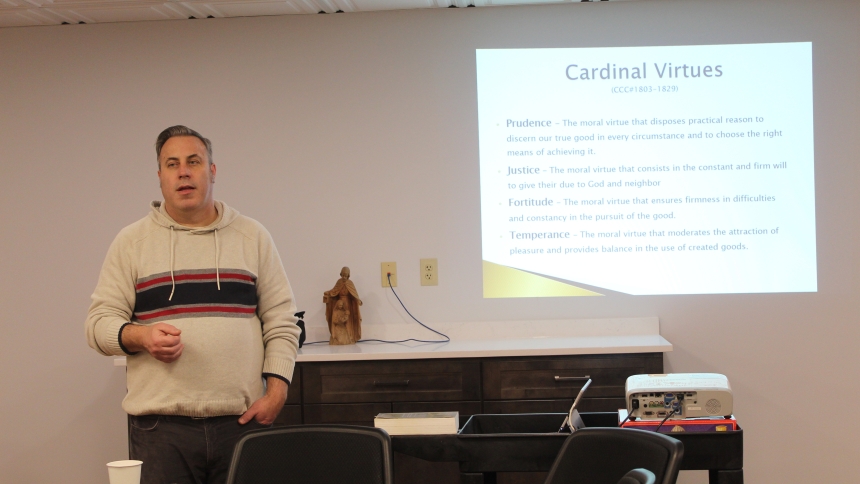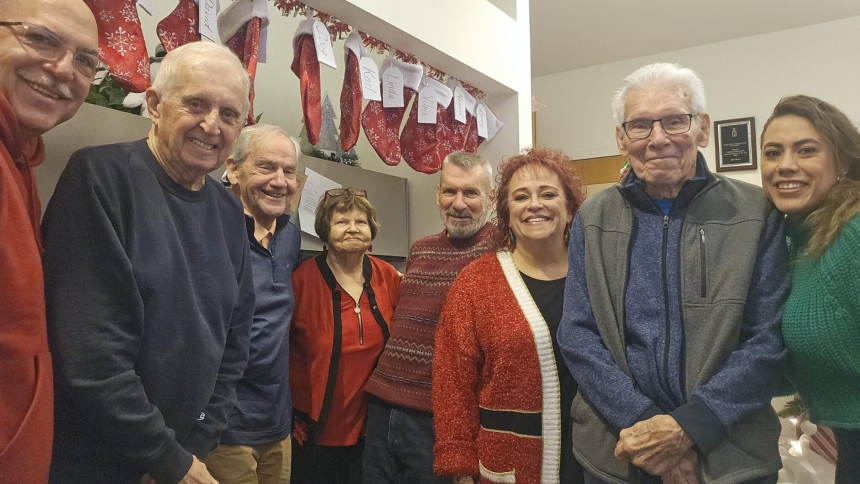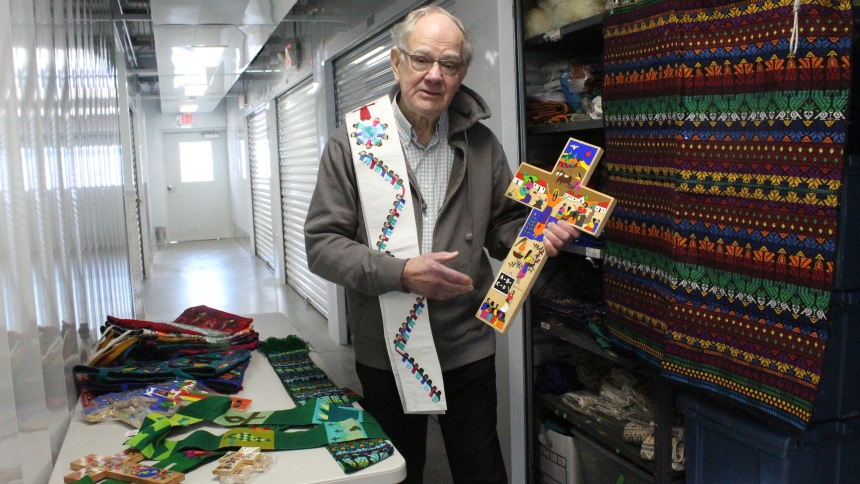
MERRILLVILLE – Living a ‘Life in Christ’ was the topic on March 18 as Sean Martin, Catechesis and Faith Formation coordinator for the Diocese of Gary’s Office of Missionary Discipleship and Evangelization, presented this year’s fourth and next-to-last Catechist Formation Workshop at the Pastoral Center.
“In the first session last fall, we looked at methodology – how to teach the faith,” said Martin. “Then we covered the Three Pillars of the Catholic Church – Magisterium (the teaching authority of the Church), Scripture and Sacred Tradition.”
In the most recent session, Martin covered a lot of ground, from describing Human Dignity and its origins to analyzing the consequences of Original Sin and the different types of sin. The Creation of Humanity was an act of God’s love, he explained, “but Original Sin was the rejection of the grace of God; Adam and Eve saying, ‘I don’t need your help.’”
“Because of that sin of pride and disobedience, we lost those preternatural gifts of dignity and worth and became subject to ignorance, suffering and death,” said Martin. “Adam and Eve had an intimate relationship with God – they talked to Him – but now there was a chasm between us, and we have to come to catechism class to learn about God.
“Sin is an offense against God,” he explained. A mortal sin is a grave matter, a serious sin that severs our relationship with God, while a venial sin is less serious, but still damages our relationship with God.” Martin also clarified that “if a sin is not done freely, it is not a sin at all.”
Since everyone has sinned, Martin added, everyone needs Jesus as their savior, and receives grace as a free and undeserved gift from God, “mostly through the sacramental life of the Church … and through grace become sons and daughters of God.”
To live a moral life, the seven infused virtues of the Church are important, said Martin, including the three theological virtues – faith, hope and charity – and the four cardinal virtues – prudence, justice, fortitude and temperance. “The theological virtues relate to God, and the cardinal virtues relate to us,” said Martin.
Faith is the virtue by which we believe in God and all He has revealed to us, explained Martin, while hope is the virtue by which we desire eternal life as our happiness and rely not on ourselves, but on the strength of God. Charity, he added, “is the virtue by which we love God above all things for his own sake, and our neighbors as ourselves for the love of God.”
As for the cardinal virtues, “prudence helps us choose the good,” said Martin, and justice explains how everyone is “owed the right to life, food, shelter and clothing – and that’s where we get the Social Teachings of the Church.”
Fortitude, said Martin, “helps us in difficult times to go on, while temperance helps moderate the attractiveness of created goods. The pleasures of the world are good,” he said, “because they point to heavenly pleasures, which is why wine is so important in Scriptures, because it symbolizes joy.”
Seven is also the number of Gifts of the Holy Spirit, Martin noted, listing understanding, knowledge, wisdom, counsel, piety, fortitude and fear of the Lord. “They are increased at confirmation, but received first at baptism,” he said, “and they correspond with the seven virtues. A healthy fear of the Lord leads to the avoidance of sin – because you don’t want punishment, but mostly because you love God … and contrition means you are sorry (for your sins) because you love God.”
The Precepts of the Church, which include attending Mass every Sunday, confessing sins at least once a year, receiving Holy Communion at least during the Easter Season, observing days of fasting and abstinence and helping provide for the needs of the Church, are “the base minimum required by the Church,” said Martin, and while they were established not by God, but by Church leaders, they are valid “because God chose to give the apostles authority.”
Beyond the precepts, he said, the Corporal and Spiritual Works of Mercy “are the things we are called to do,” from feeding the hungry and visiting the sick to bearing wrongs patiently and forgiving offenses willingly.
In reviewing the Ten Commandments, Martin noted that while some Protestants say “I am saved” and that’s it, “We (Catholics) say ‘I am saved, I am being saved and I hope to be saved,” considering it an ongoing process.
He ended the presentation with a discussion about St. Gregory of Nyssa, a Catholic priest who was the first martyr to be photographed as he stretched out his arms to be shot, and is known for his quote, “The goal of a virtuous life is to become like God.”
Martin concluded, “God is holy, so our aim is to live a holy life,” and the work of the catechist is to teach their students how to do that.
The fifth and final workshop, “Relationship with God,” will be presented at 6 p.m. on Tuesday, April 1, at the Pastoral Center. Register at dcgary.org/catechist-formation or 769-9292, ext. 88230.
Caption: "The cardinal virtues of the Catholic Church are prudence, justice, fortitude and temperance," outlined Sean Martin, coordinator of Catechesis and Faith Formation for the Diocese of Gary, at a Catechist Formation Workshop on March 18 at the Pastoral Center in Merrillville. (Marlene A. Zloza photo)



